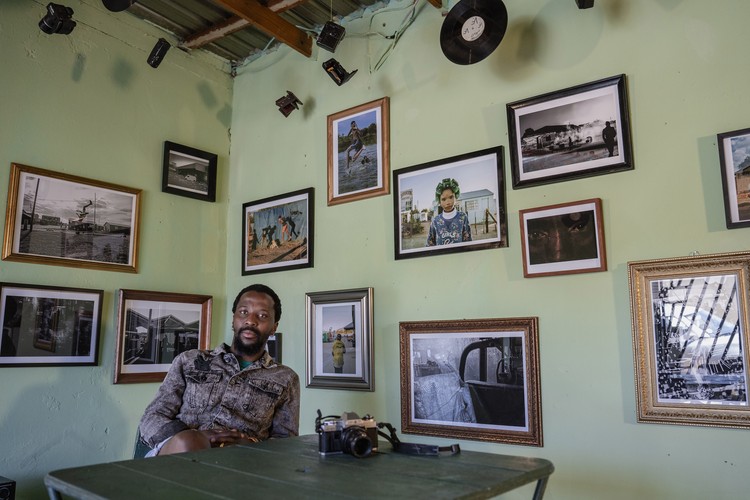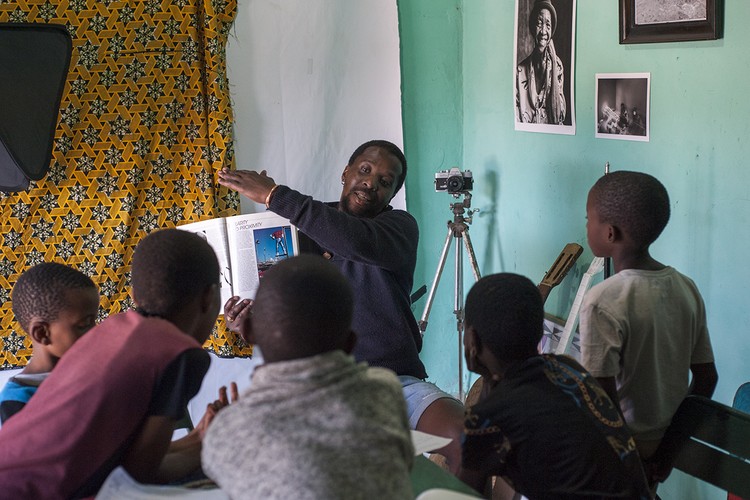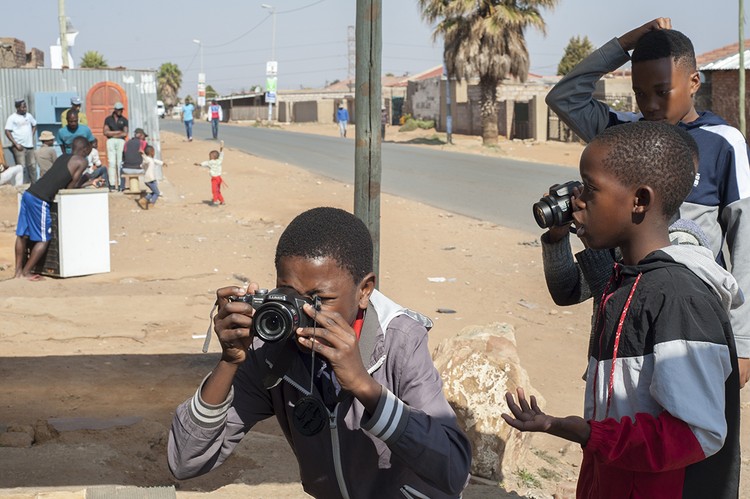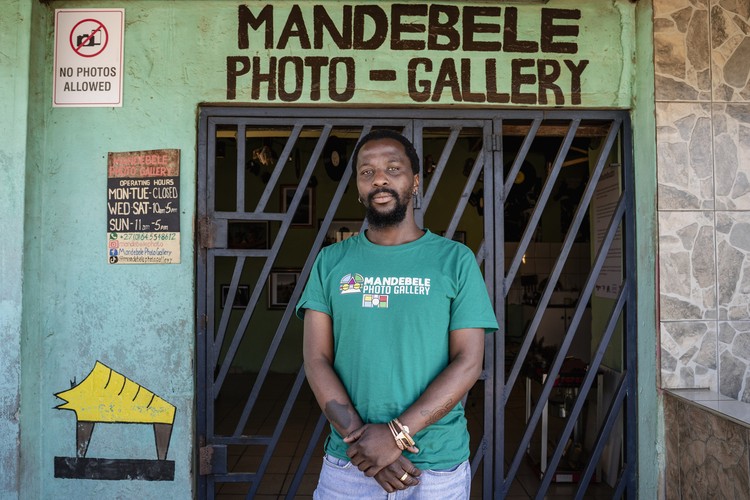Soweto gallery brings photographic art to the people
Photography is not just for the elite, says Gopolang Ledwaba
Gopolang Ledwaba, the founder of the Mandebele Photo Gallery in Braamfischerville, Soweto. Photo: Ihsaan Haffejee
Photographer Gopolang Ledwaba became inspired to open a gallery in Soweto while he was studying in Johannesburg and noticed photos produced in poor communities hanging on the walls at high-end galleries. The photos would rarely be displayed in the areas where they were taken.
So he saved money from his work as a photographer and in 2020 opened the Mandebele Photo Gallery. The gallery is on a busy street in Braamfischerville, Soweto, where it stands out among more typical businesses like food takeaways and hair salons.
Its bright green walls currently exhibit photos of the 1976 Soweto student uprising by the late photojournalist Peter Magubane, accompanied by new contemporary photos by local photographers.
Ledwaba teaches photography to a group of children. Photo: Mpho Mukono (supplied)
Ledwaba says the facility is not just a photo gallery, but also a resource centre where people from the community can learn about visual storytelling and art. It has a library of books and a space which can be used as a photo studio. They regularly host educational workshops about the business of art and photography.
Ledwaba also offers classes for children in visual literacy and the technicalities of light and composition.
“These kids would always walk past the gallery and peek inside. So one day I invited them in and asked them if they would like to learn about photography,” said Ledwaba.
They can often be seen walking around the community with cameras donated to the gallery, guided by Ledwaba.
Young children practice their skills under Ledwaba’s guidance in the streets of Braamfischerville, Soweto. Photo: Gopolang Ledwaba (supplied).
“We are entirely self-funded, so we are always appealing for donations of old camera equipment for the kids to use during their lessons,” said Ledwaba. He also hopes to expand the gallery and its impact on the community.
Ledwaba’s interest in photography was sparked by a lesson in English class in primary school, in which they were told to select articles from newspapers and discuss them with the class.
“I remember being captivated by the photographs that I would come across. At the time, there was the war in Iraq, and I was fascinated by the images that were in the paper. I was more interested in the photographs than in the articles,” he says.
He initially wanted to go to film school, but it was too expensive. “My mother was working as a domestic worker, so she couldn’t afford it.” So he worked as a waiter and saved his money to buy his first camera. He taught himself how to take photographs.
“Every free moment I had, I would be taking pictures. If I worked the night shift at the restaurant, I would come home, sleep for two hours and then head out and start taking photographs,” said Ledwaba.
He went on to study photography at the Market Photo Workshop in Johannesburg. It was here that he got the idea to start his gallery.
“Art should not just be for the elite, it should be for everybody. If people can be exposed to art that they don’t normally have access to, people will begin to view themselves differently and begin to view the world differently.”
Ledwaba at the entrance to the Mandebele Photo Gallery. He has placed an ironic “No Photos Allowed” sign by the door. Photo: Ihsaan Haffejee
Support independent journalism
Donate using Payfast

Don't miss out on the latest news
We respect your privacy, and promise we won't spam you.
Next: Blind children study in crumbling classrooms as new school project stalls
Previous: KZN government fails to pay crèches despite court order
© 2025 GroundUp. This article is licensed under a Creative Commons Attribution-NoDerivatives 4.0 International License.
You may republish this article, so long as you credit the authors and GroundUp, and do not change the text. Please include a link back to the original article.
We put an invisible pixel in the article so that we can count traffic to republishers. All analytics tools are solely on our servers. We do not give our logs to any third party. Logs are deleted after two weeks. We do not use any IP address identifying information except to count regional traffic. We are solely interested in counting hits, not tracking users. If you republish, please do not delete the invisible pixel.




